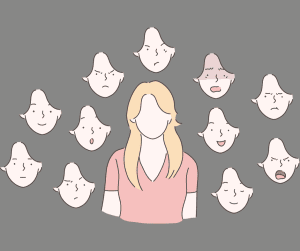Nature vs. Nurture
What is the nature-nurture debate all about?
- Nature refers to the genes and hereditary factors that influence who we are—from our physical appearance e.g. blue eyes, brown hair, to our personality characteristics e.g. outgoing, shy etc… Simply put, they are a complete set of instructions found inside of us, about us.
- Nurture refers to all the things in our environment that impact who we are. For example, our early childhood experiences, how we were raised, our relationships with friends and family, the culture we were brought up in, religious beliefs and practices etc…
Some examples:
If a student does very well in school and gets 90’s in all their tests, does this mean that they are very intelligent, or could it be that they have a lot of help and support at home?
If a girl seems stressed and cries often, does this mean that she is an unhappy and anxious person, or could it be that something is happening in her environment that is upsetting her?
Take a moment to think about yourself. Come up with three adjectives to describe your personality and really think about how you became this way. Do you think you were born like that, is it caused by your environment or maybe a mix of both?
In short, the nature-nurture debate looks at why we are the way we are. Some people believe our personality is strictly genetic and is formed within us, whilst others think it is the result of everything around us and the different experiences we have lived through.
Truth be told, there is no evidence that shows either one to be the only factor. On the contrary, a mix of both nature and nurture is what now is believed to affect the way we grow up and what kind of a person we become.

Personality types
So what exactly makes up personality? Some of the things that define who we are include patterns of how we think and behave, as well as our emotional way of being. For example; when someone upsets me, how do I normally think about the situation that happened, and how do I behave? Do I always feel like it is my fault and get upset? Or do I understand that it’s ok to get into arguments and although I am hurt, we can still be friends? From this example you can see that the way we react to things in life greatly influences what kind of a person we are and how our personality is described by ourselves and others.
Our personality is greatly influenced by the people around us and by our relationships with others. For example, we may be more open and comfortable expressing ourselves with friends, whilst shy and quiet around people we do not know. It is important to remember that personality is not a fixed, rigid description of who you are. Also, over time the way we are may change due to life experiences and relationships we have with others.

Extroversion and Introversion
There are many theories about personality. Carl Jung, a Swiss psychiatrist and psychoanalyst, described people as being either extroverted or introverted.
Extroverted Personality – This describes someone who is outgoing and is energized when surrounded by other people. Extroverts enjoy going out and socializing and usually have a large social circle.
Introverted Personality – This describes someone who prefers spending time with few people and is happy to be alone. Introverts enjoy their own company and tend to have a few close friends whom they trust and spend time with.
There is no right or wrong way of how to be. Being comfortable in your own skin and being true to yourself is more important than anything else.
As the Indian actress and model Juhi Chawla said, “there is an amazing power getting to know your inner self and learning how to use it and not fight with the world. If you know what makes you happy, your personality, interests and capabilities, just use them, and everything else flows beautifully.”
If you would like to speak with someone anonymously about your personality and identity feel free to contact us at any time through our chat, smart messaging app, or email. All of these services are available 24/7 and are accessible at the following link: https://kellimni.com/



























